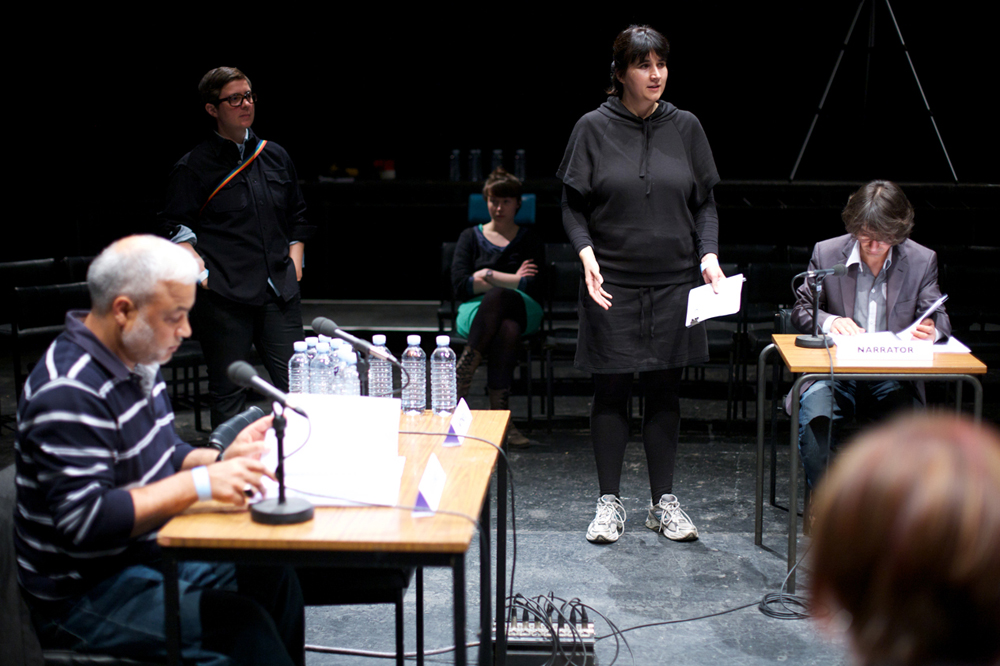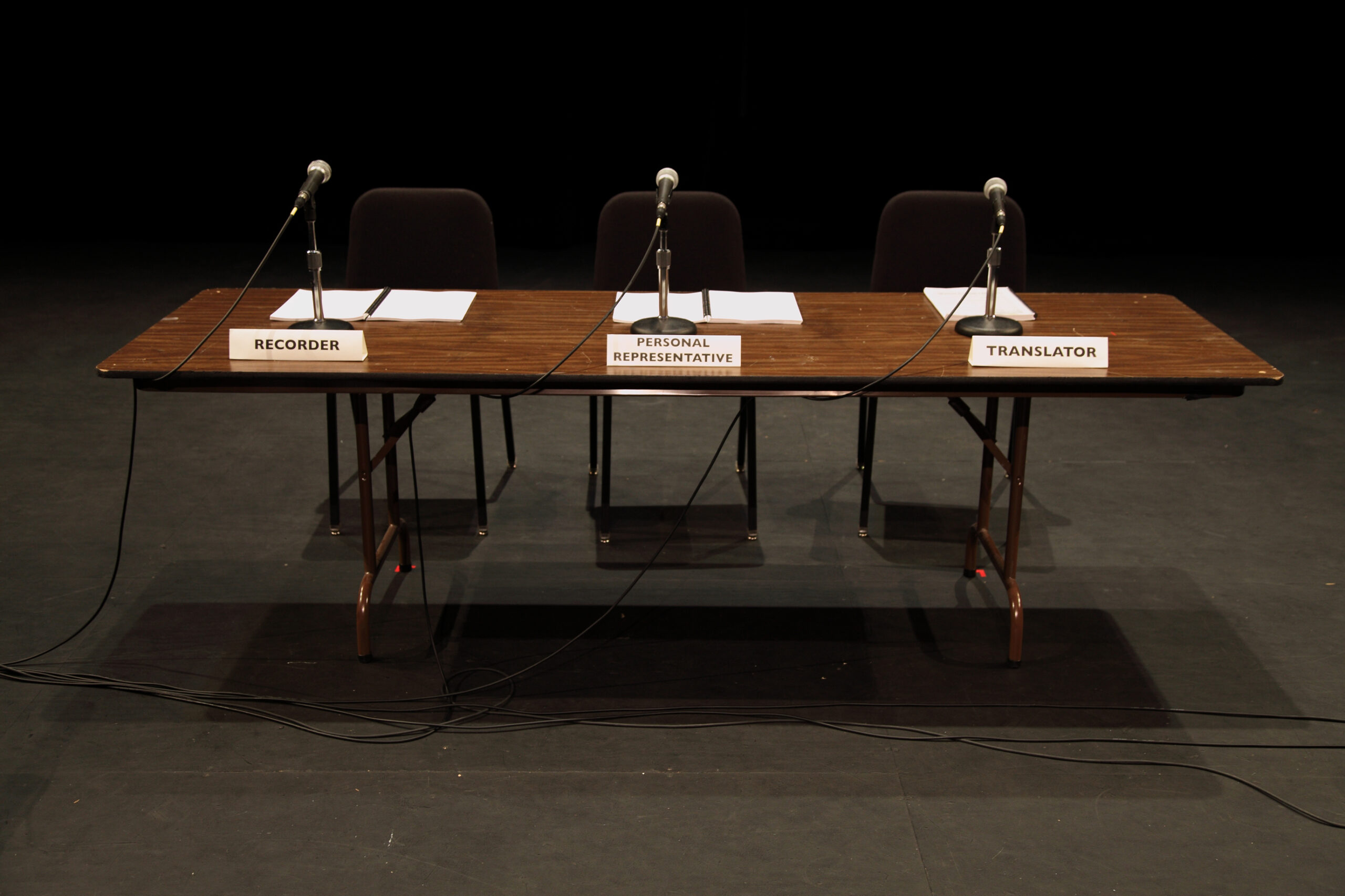Combatant Status Review Tribunal
Combatant Status Review Tribunal
pp. 002954 to 003064: A Public Reading
Somewhere between performance, stripped down theatre and an intense kind of public learning or maybe even a public hearing. Artists in attendance at the event will be Andrea Geyer, Katya Sander and Ashley Hunt. Participants in the reading are Judith Robertson, Deirdre Heddon, Gary Christie, Ako Khalil Zada, Tony Kelly, Allison Julia Taudevin, Stewart Laing, Habib Malik, Jo Shaw and Paula McCabe.
ReadWho
David Thorne, Katya Sander, Ashley Hunt, Sharon Hayes and Andrea Geyer have been working together as artists, organizers, researchers, and writers on and off and in varied ways for the last eight years. They began working together in August 2004, which was also one year into the U.S. invasion of Iraq, an event and a condition that occupied many of their discussions and came to be the central focus of their work.
What
Somewhere between performance, stripped down theatre and an intense kind of public learning or maybe even: a public hearing. A four-hour public reading of unedited transcripts from 18 Combatant Status Review Tribunals held at the U.S. military prison camp in Guantanamo Bay, Cuba, between July 2004 and March 2005 1 . Nine local people have been invited to read the transcripts, rotating through eight juridical positions during the evening (Tribunal President, Tribunal Member, Detainee, Witness…).
Why
By presenting the transcripts word for word, the readings offer insight into the complicated geopolitical landscape in Afghanistan and Pakistan between 2001 and 2005, and aim to expose the contradictory and problematic processes the U.S. military has used in capturing, detaining, and classifying so-called “enemy combatants.”
- The Combatant Status Review Tribunals, or CSRTs, were established in response to the U.S. Supreme Court ruling in Hamdi v. Rumseld, which determined that Guantanamo detainees must have the opportunity to contest their status as “enemy combatants,” providing the appearance of due process. During each tribunal, the U.S. government would present unclassified accusations against the detainee, and the accused would be permitted to rebut these specific charges. The Detainee would be given ‘personal representation’ but not legitimate legal counsel; he would not be allowed to see – or therefore contest – any classified information, which comprised the majority of information justifying their imprisonment
Documentation
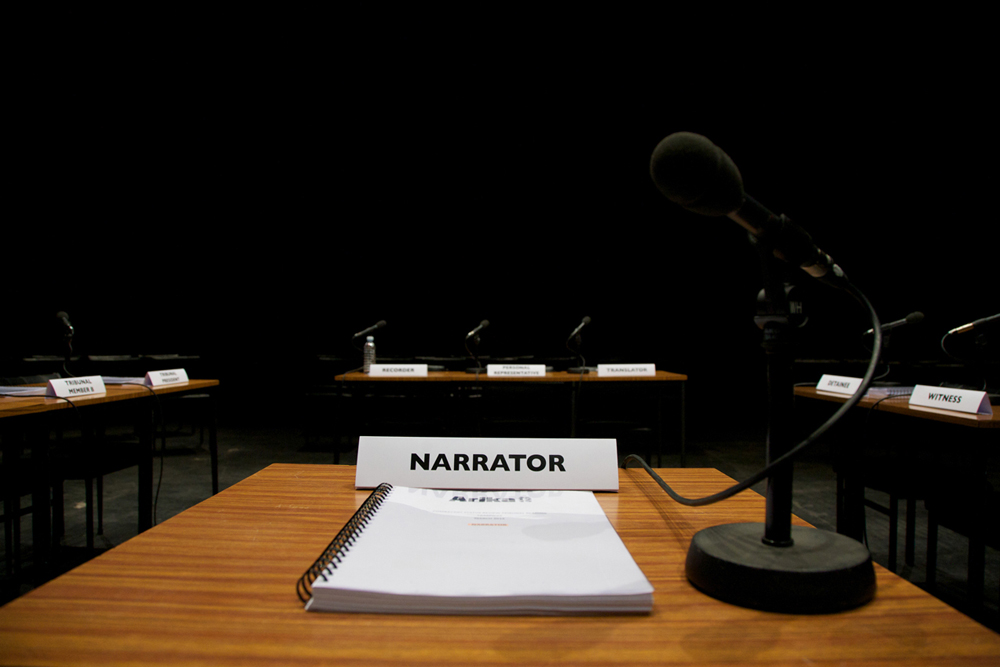
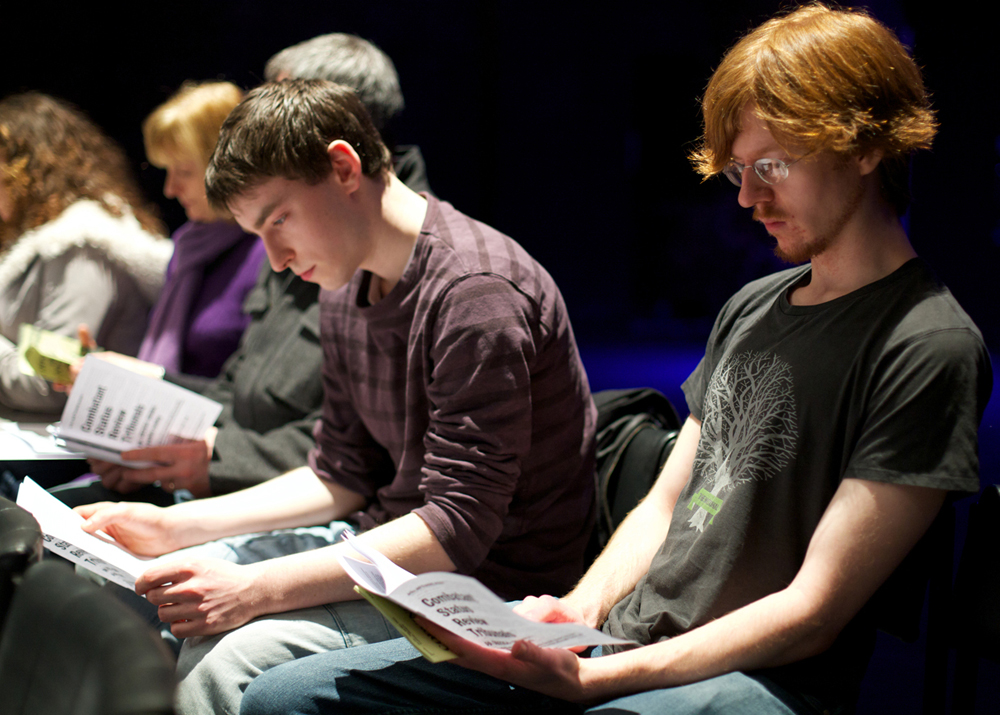
▴ Credit: Alex Woodward
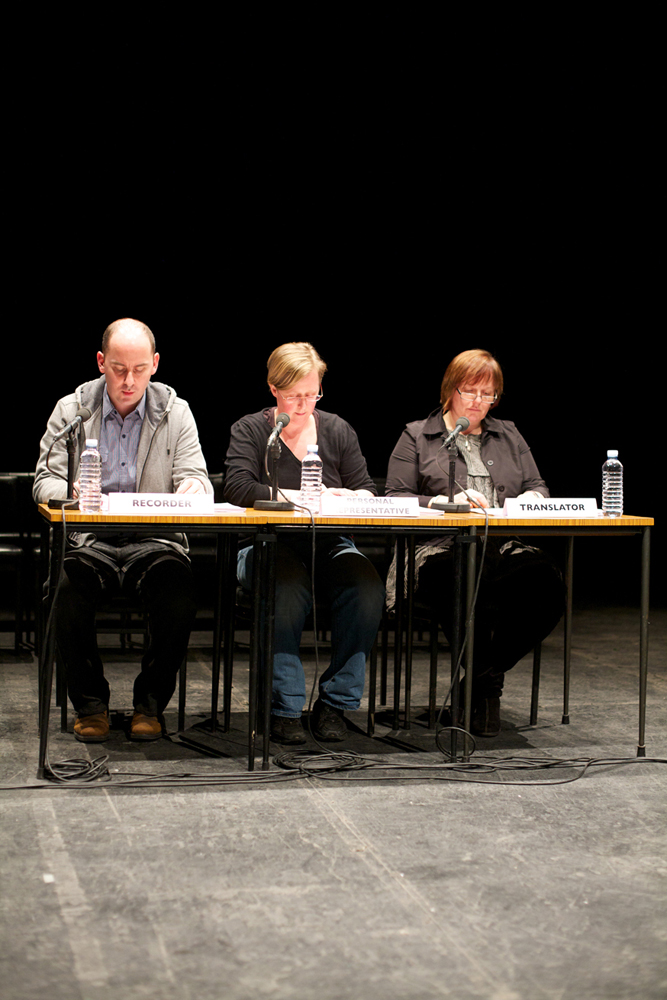
▴ Credit: Alex Woodward
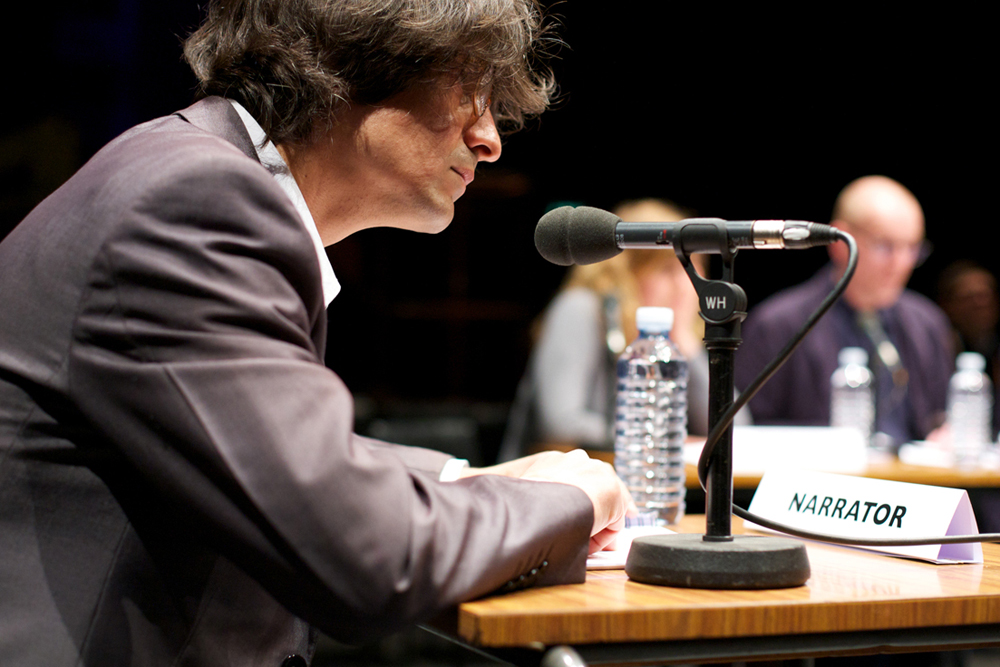
▴ Credit: Alex Woodward
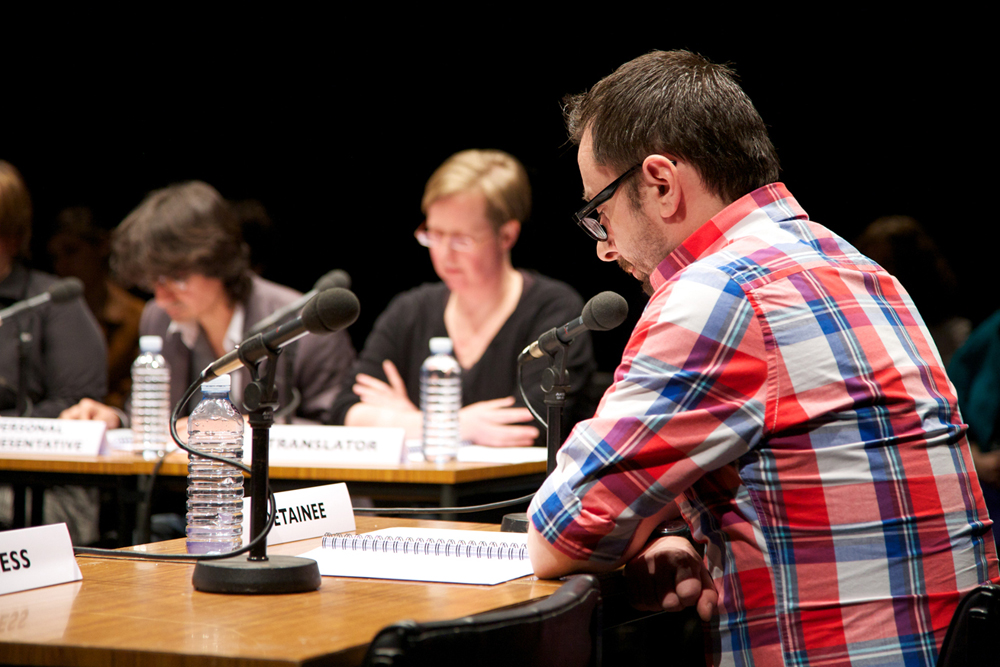
▴ Credit: Alex Woodward
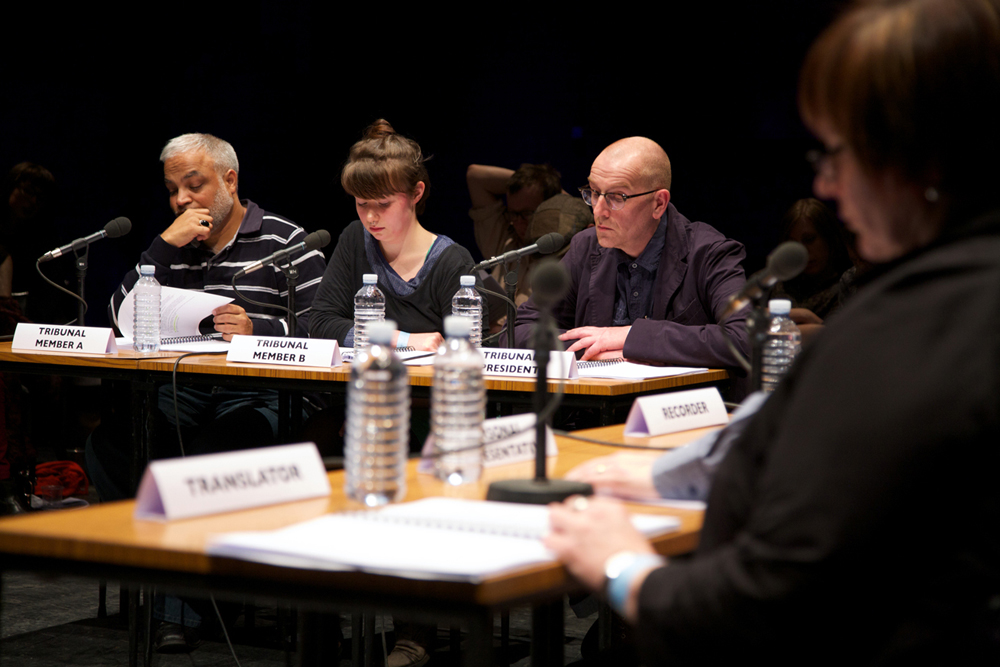
▴ Credit: Alex Woodward
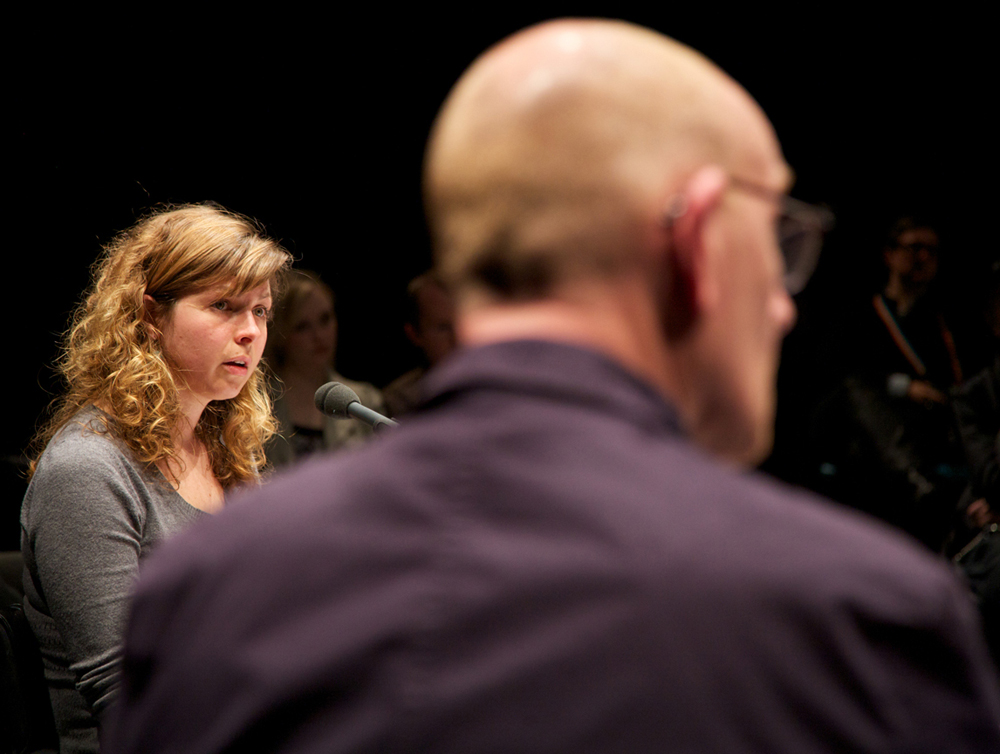
▴ Credit: Alex Woodward
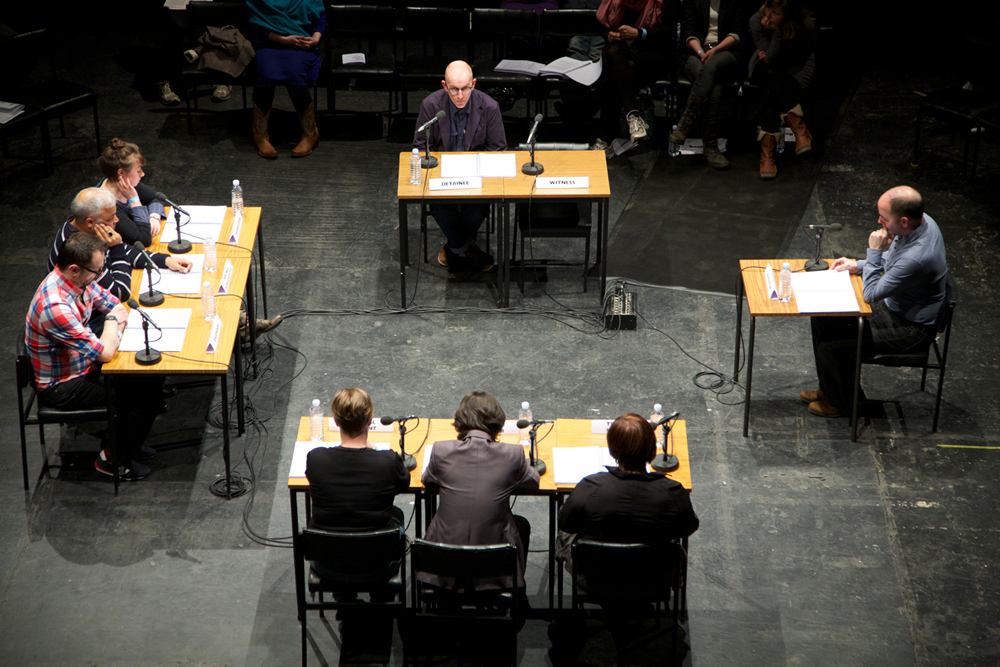
▴ Credit: Alex Woodward
Artists
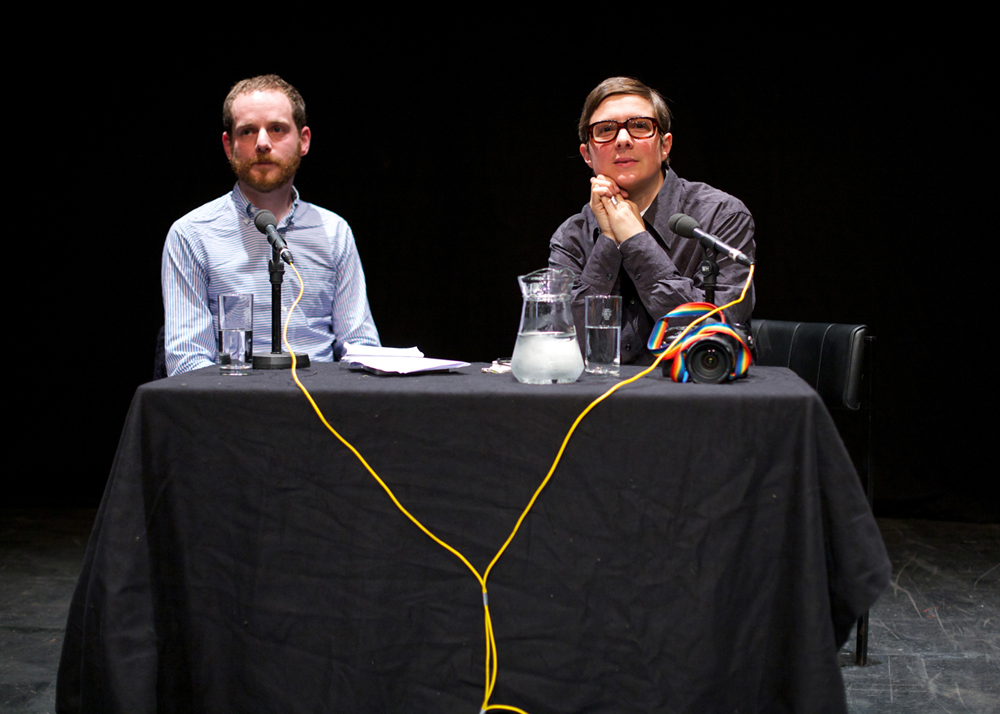
Andrea Geyer
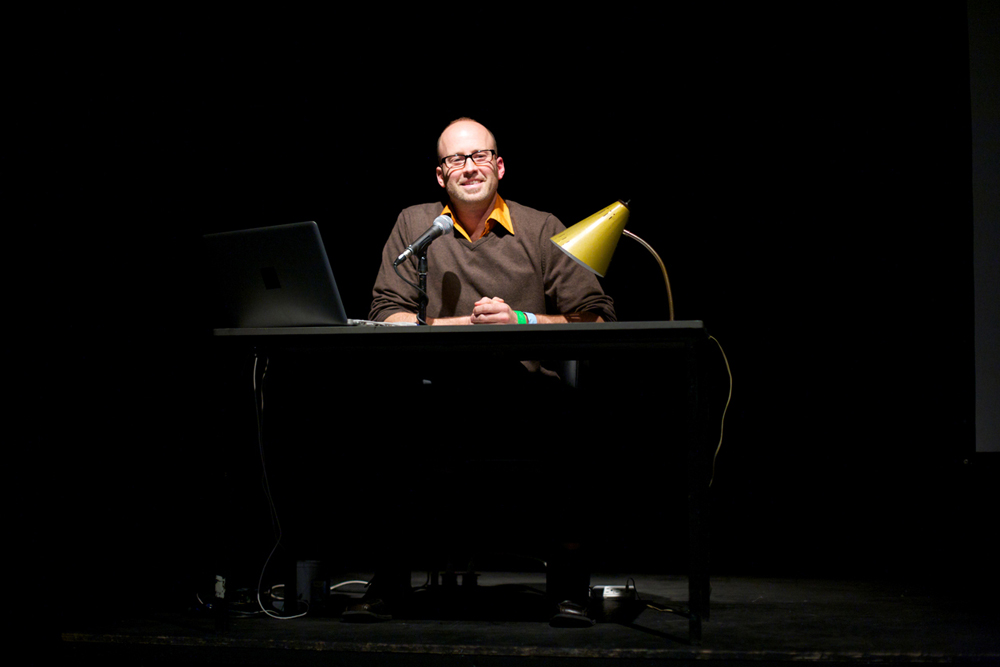
Ashley Hunt

David Thorne

Sharon Hayes
